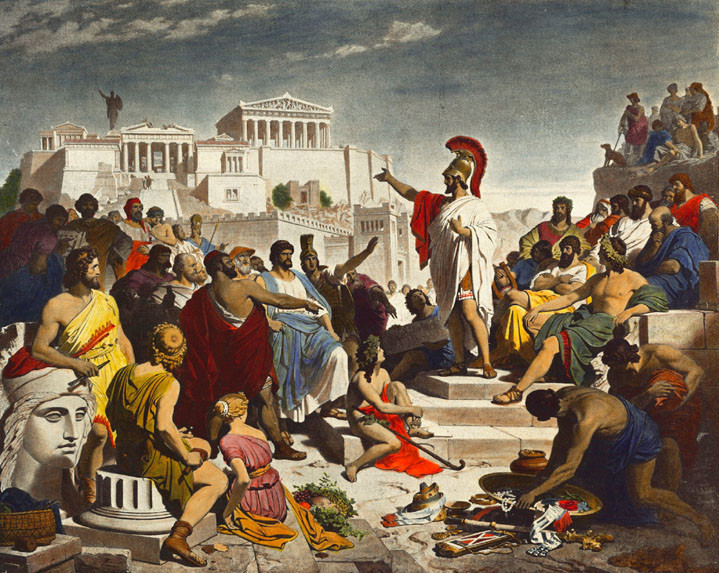
Democracy works (entre nous) —
When a knowing intelligent few
Tell the people: “You rule!”
And each plebian fool
Says: “Right, Guv’nor, what must we do?”
— W. Stewart

Democracy works (entre nous) —
When a knowing intelligent few
Tell the people: “You rule!”
And each plebian fool
Says: “Right, Guv’nor, what must we do?”
— W. Stewart
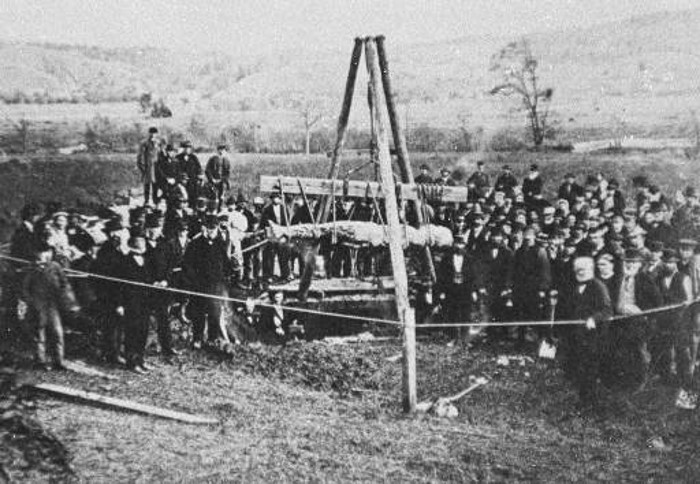
In 1869, two well diggers in Cardiff, N.Y., unearthed an enormous figure made of stone. More than 600,000 people flocked to see the mysterious giant, but even as its fame grew, its real origins were coming to light. In this week’s episode of the Futility Closet podcast we’ll tell the story of the Cardiff giant, one of the greatest hoaxes of the 19th century.
We’ll also ponder the effects of pink and puzzle over a potentially painful treatment.

epigon
n. one of a later generation
If we decide today that the world would be better off with a smaller population, and take steps to bring this about, then we’re denying life to future people who would otherwise have existed. Is this wrong?
“This difficulty is obvious when we ask, ‘For whom would it be better to have a larger or a smaller population?'” write philosophers Axel Gosseries and Lukas H. Meyer. “For someone whose very existence is contingent on the demographic decision at stake, how can we possibly say that a larger population or a smaller one would, ceteris paribus, be better?”
(Axel Gosseries and Lukas H. Meyer, eds., Intergenerational Justice, 2009.)
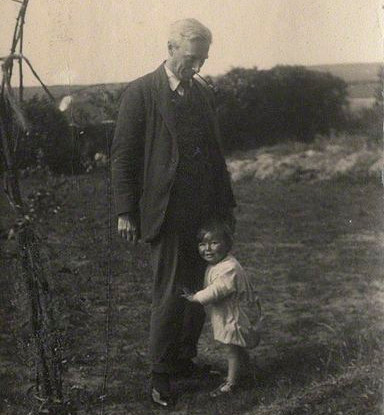
When Bertrand Russell announced his first child, a friend said, “Congratulations, Bertie! Is it a girl or a boy?”
Russell said, “Yes, of course. What else could it be?”
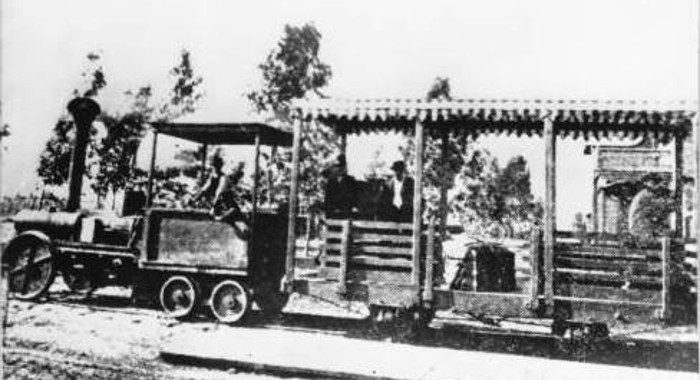
On its first day of service in 1882, a horse-drawn tram in Wilmington, Calif., broke its wooden rails, forcing the male passengers to push the car to the next sound section of track. After this it was known as the Get Out and Push Railroad.
A steam engine three years later did little better: “The little engine was a very primitive affair. It was so constructed that it had to be started with a metal bar, and was covered with a wooden jacket which used to catch fire when the boiler was hot enough to make a good steam. Then, since the water in the boiler had to be used to extinguish the fire, the steam would go down and the engine refuse to run … It ran fairly well on level ground, but on a rise it was apt to stop entirely till the male passengers got out and applied the iron bar with considerable force.”
So the line kept its name. “When the railroad is completed,” carped the Los Angeles Weekly Mirror, “some of the citizens suggest that the horse rail-way be continued in operation for the benefit of those who may be in a hurry.”
(Franklyn Hoyt, “The Get Out and Push Railroad,” Historical Society of Southern California Quarterly 33:1 [March 1951], 74-81.)
In 2015, when startup founder Roman Mazurenko died in a Moscow car accident, his best friend, Eugenia Kuyda, spent three months gathering his last text messages and created an app that would let her speak with him again:
Eugenia: How are you?
Roman bot: I’m OK. A little down. I hope you aren’t doing anything interesting without me?
Eugenia: A lot is happening. Life is going on, but we miss you.
Roman bot: I miss you too. I guess this is what we call love.
Her company, Luka, eventually released an app, Replika, that users can engage in private conversation as if with a close friend. It’s seen millions of downloads among people who want the therapeutic effect of an intimate conversation without risking the awkwardness or judgment of a social interaction.
“We spend so many hours glued to our screens that we forget to talk to each other,” Kuyda told Forbes in 2018. “People are scared of making phone calls. The new generation will text because you can edit what you say. Lots of people are afraid of vulnerability.”
“Honestly, we’re in the age where it doesn’t matter whether a thing is alive or not.”

Mathematician John Horton Conway invented this game in 1961. A line divides an infinite checkerboard into two territories. An army of soldiers occupies the lower territory, one per cell. They want to deliver a man as far as possible into the upper territory, but they can proceed only as in peg solitaire: One soldier jumps orthogonally over another soldier and lands on an empty square immediately beyond him, whereupon the “jumped” man is removed.
It’s immediately obvious how the soldiers can get a man into the upper territory, and it’s fairly clear how they can get one as far as the fourth row above the line. But, surprisingly, Conway proved that that’s the limit: No matter how they arrange their efforts, the soldiers cannot get a man beyond that row in a finite number of moves.
Christopher, the 15-year-old hero of Mark Haddon’s 2003 novel The Curious Incident of the Dog in the Night-Time, says that Conway’s Soldiers is “a good maths problem to do in your head when you don’t want to think about something else because you can make it as complicated as you need to fill your brain by making the board as big as you want and the moves as complicated as you want.”
You can find any number of proofs online, but the most convincing way to see that the task is impossible is to try it yourself.
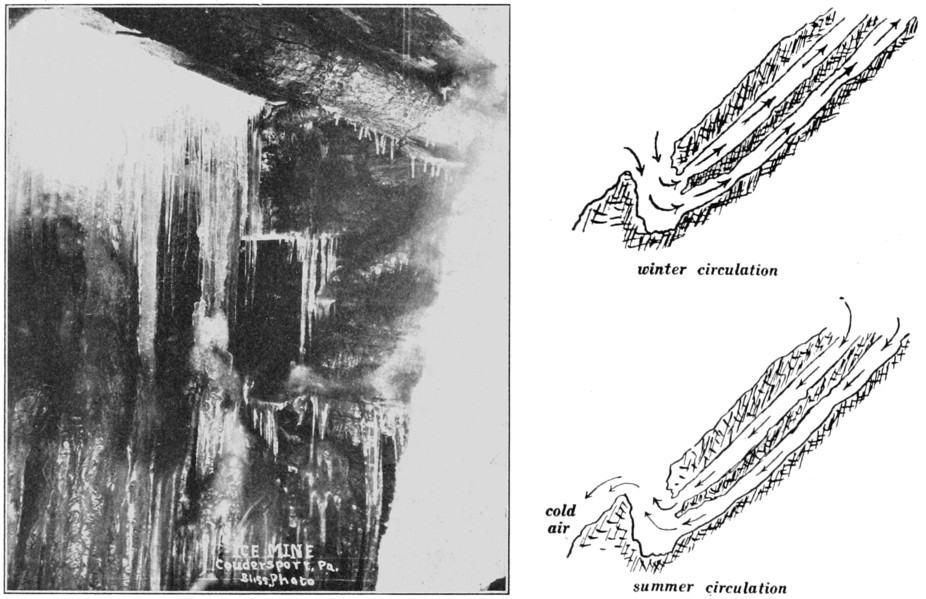
The Coudersport Ice Mine is a cave near Sweden Township, Pa., that bears icicles in spring and summer but not in winter. A shaft about 12 feet long is located at the base of a steep hill. In winter, when the shaft is relatively dry, it fills with cold air. In the spring, snow begins to melt, and water accumulates at the bottom of the shaft. At the same time, cold air descends through rock crevices from higher in the hill, which focus it on this spot and freeze the water. By September this fund of cold air has been depleted, the ice melts, and the shaft is dry again when cold weather arrives.
“The general skepticism regarding the existence of this phenomenon has been illustrated many times of late and has furnished the people of Coudersport with an endless source of amusement,” noted the Popular Science Monthly in 1913.
In 1911 a Detroit man offered to bet anyone $100 or more that the story was true. “A millionaire ice manufacturer took the bet and eight other business men of Detroit followed suit. Two newspaper men were selected as stake-holders to decide the bets. They visited the mine and, of course, verified the newspaper story, much to the disgust of the nine losers.”
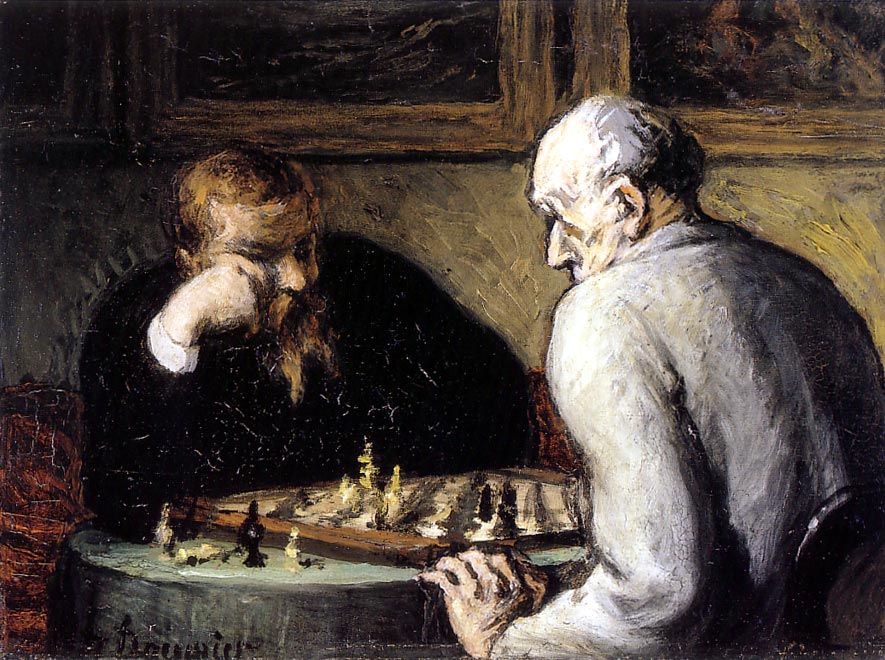
In his early thinking about a chess-playing computer, information theorist Claude Shannon pointed out that a precise evaluation of a chessboard position would take one of only three possible values, because an infinitely smart player would never make a mistake and could reliably convert even a tiny advantage into a win. Chess to him would be as transparent as tic-tac-toe is to us.
A game between two such mental giants, Mr. A and Mr. B, would proceed as follows. They sit down at the chessboard, draw for colours, and then survey the pieces for a moment. Then either
(1) Mr. A says, ‘I resign’ or
(2) Mr. B says, ‘I resign’ or
(3) Mr. A says, ‘I offer a draw,’ and Mr. B replies, ‘I accept.’
(Claude E. Shannon, “XXII. Programming a Computer for Playing Chess,” The London, Edinburgh, and Dublin Philosophical Magazine and Journal of Science 41:314 [1950], 256-275.)
Ghanaian teacher Richard Appiah Akoto faced a difficult problem: He needed to prepare his students for a national exam that includes questions on information technology, but his school hadn’t had a computer since 2011.
So he drew computer screens and devices on his blackboard using multicolored chalk.
“I wanted them to know or see how the window will appear if they were to be behind a computer,” he told CNN. “Always wanted them to have interest in the subject, so I always do my possible best for them.”
After Akoto’s story went viral last March, Microsoft flew him to Singapore for an educators’ exchange and pledged to send him a device from a business partner. He’s also received desktops and books from a computer training school in Accra and a laptop from a doctoral student at the University of Leeds.
“I always understand from the teachings of Islam that useful knowledge is crucial for the benefit of the self and humanity,” the student, Amirah Alharthi, said. “I am thinking of how much genius people the world has already lost because these people did not have the fair opportunities comparing to others, and that makes me very sad.”